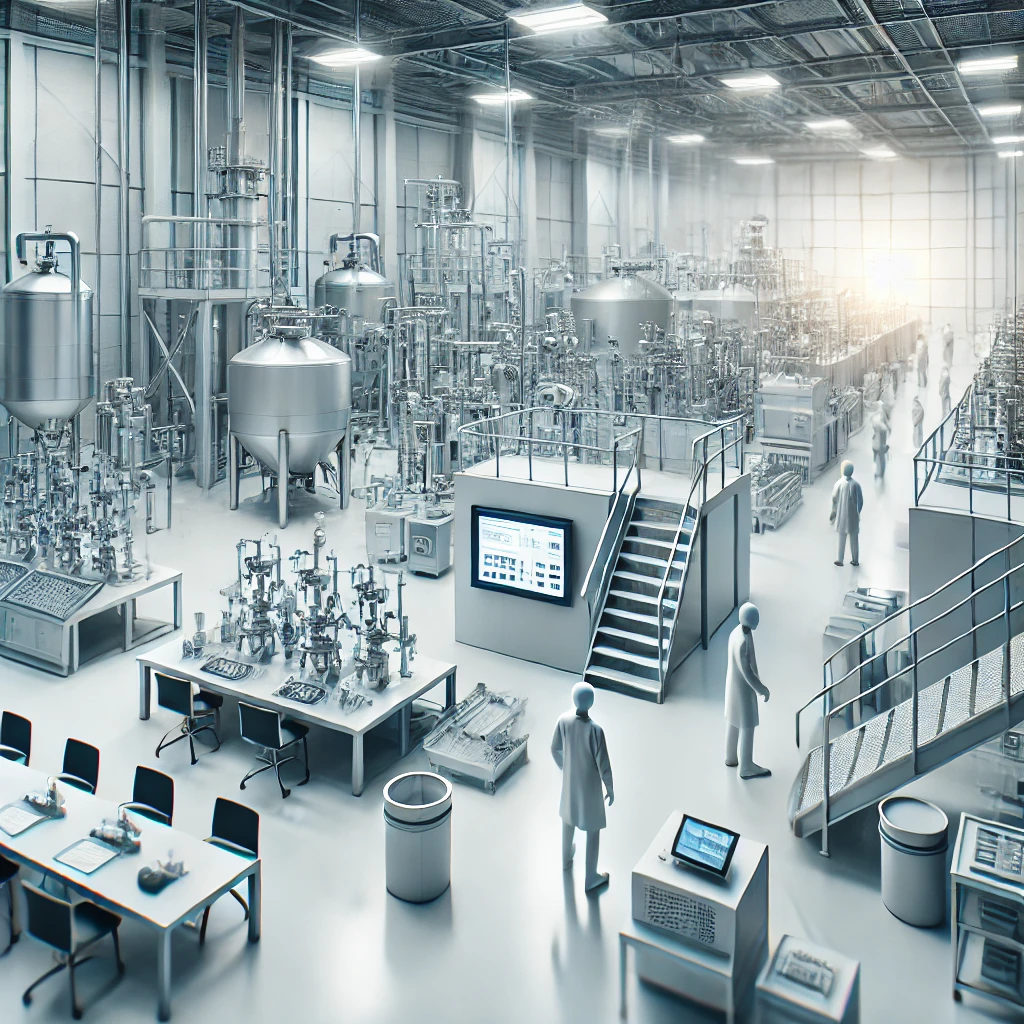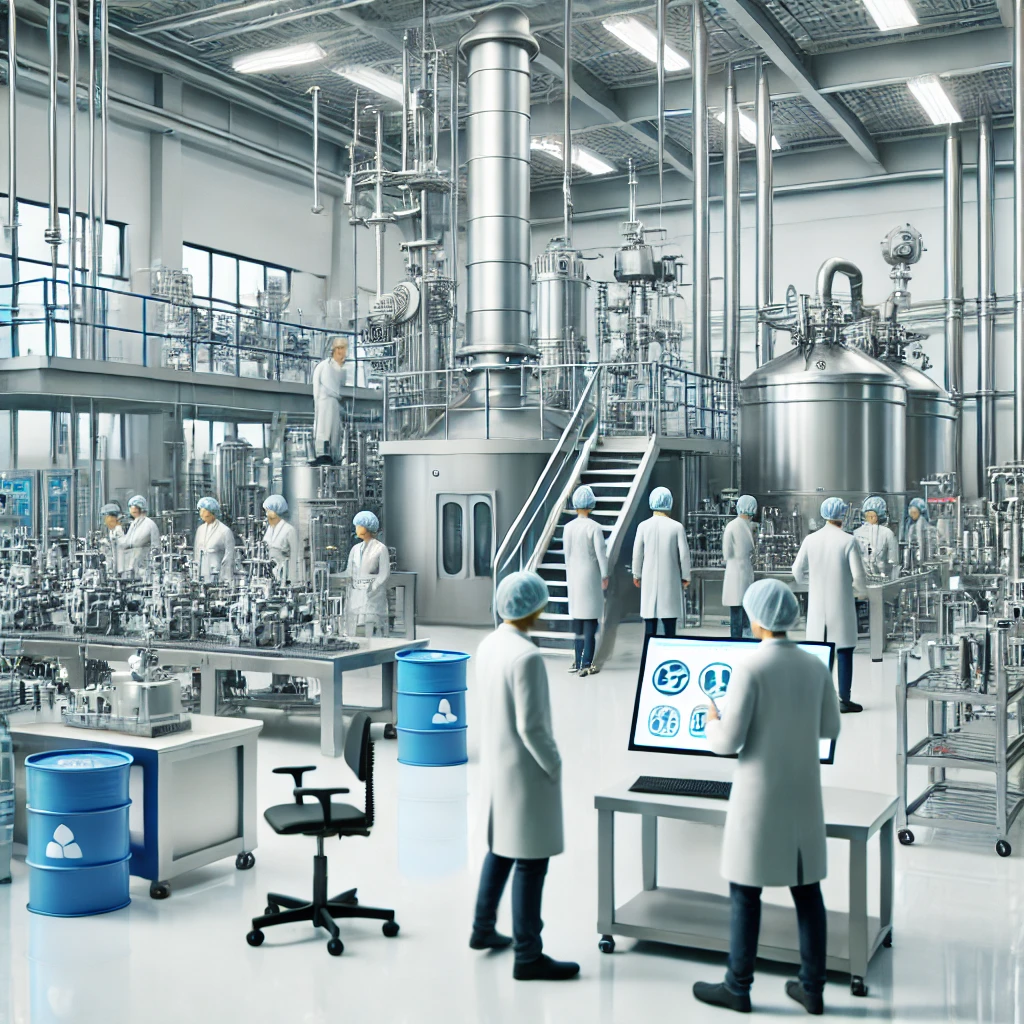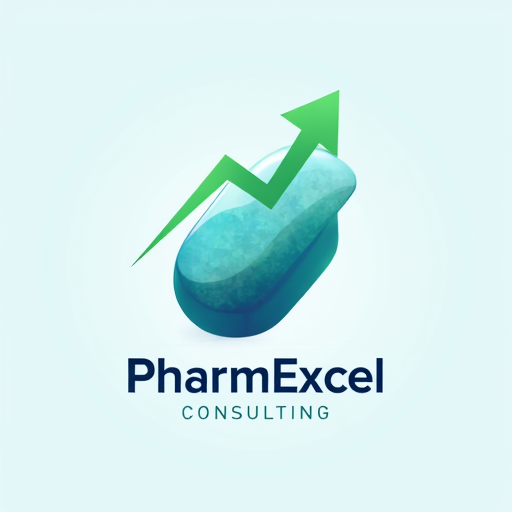
Gaining Potential: Why Lean Is Important in Specialty Chemicals
It is the most complicated and challenging manufacturing field: specialty chemicals. Unlike generic chemicals, specialty chemicals tend to be specialized to incredibly niche needs and use very specific formulations, very strict manufacturing and quality control. Such different needs create challenges and possibilities for organizations that wish to remain competitive in a global marketplace.
Lean thinking and operating excellence help with these challenges. In essence, lean is a mindset where the value provided to the customer should outweigh the waste. The waste here is not just physical resources, but also inefficiencies of processes, time, energy, even human capacity. It is operational excellence that takes it one step further by setting the culture of continual improvement at all levels of the organization.
Think of what specialty chemical companies are up against: expensive production, layered supply chains, endless regulatory scrutiny. All these problems are augmented by the demands of innovation, sustainability and fast adaption to market needs. Lean is a method to recognize waste and find the processes that lead to short- and long-term value.
Lean Practices in Action: A Case Study in Specialty Polymer Manufacturing
This lean revolution, for instance, took place at a specialty polymer producer, who was being squeezed by the rivals and higher energy prices. Lean practices like value stream mapping and Six Sigma helped the company identify wasteful production lines and use more machines. It saved them 20% of energy and cost, without compromising quality or time to market.
In this brief, we can see how lean practices can transform specialty chemicals manufacturing. For the remainder of this article, I will cover in detail about lean methods and operational excellence, discuss industry specific challenges, and illustrate how you can implement these ground-breaking concepts.
The Lean Principles and Operational Excellence: What you Need to Know
Lean means creating more value with less. Thought of first as part of the Toyota Production System, lean thinking has now spread to various industries including specialty chemicals. This is what lean is all about: tracking and eliminating waste, or anything that is not valuable from a customer’s perspective. This waste can be of any sort: overproduction, excess stock, lag times, bad products.
The same is true for specialty chemicals, so lean should be tailored to the specific challenges of the industry. Specialty chemicals typically have small batches, highly variable compositions and customized manufacturing processes compared with conventionally manufactured chemicals. Such variability creates inefficiencies that would be difficult to detect without lean thinking’s methodologies and instruments.
Operational Excellence: Beyond Efficiency
Operational excellence takes the principles of lean and incorporates them in the culture and organization strategy. It is not merely a matter of efficiency at one or two points but of building a culture of continual improvement at all levels of the company. Lean, for instance, could be a matter of optimizing a specific production line; operational excellence means that what you learn during this optimization is replicated across the organization.
Value stream mapping is one of the major parts of lean thinking. It is a software to visualize companies entire manufacturing lifecycle from the raw material supply to the end product. Identifying bottlenecks and inefficiencies enables value stream mapping for specific, measurable improvement. One adhesives specialty company utilized this method to find that 25% of its production time was eked out by unnecessary quality control. When they changed the process and implemented inline quality checks, the company cut production time by 15% and up throughput without sacrificing quality.
These gains are extended to operate with operational excellence in that they are scalable. It’s building processes and structures that ensure continuous efficiency improvements (training programs, management training, performance tracking). This level of integration is key to success in specialty chemicals where the uncertainty in production and regulatory constraints are ever-present.
Lean thinking and operational excellence are more than a method or a tool, they’re values that enable organizations to stay agile and competitive. In the case of specialty chemicals firms, if they follow these principles, then they will have entered an era of efficiency, innovation and sustainability.

For a more in-depth discussion of the topic, please check out: Operational Excellence: More Than Efficiency in Specialty Chemicals
Challenges Special to the Specialty Chemicals Sector
The specialty chemicals market is no ordinary sector of the manufacturing industry. It is intrinsically complicated because of the products that are usually designed to specific clients. Customized specialty chemicals don’t have the same kind of rigidity and consistency as commodity chemicals, which are made at mass with standardized processes. It’s a complex nature, which comes with its own challenges in the industry.
Production fluctuation is the biggest one. Aesthetic chemicals are often produced in smaller batches – and each batch needs its own raw materials, formulations and conditions of processing. It is impossible to synchronize processes and ensure the best production yield with such variability. Frequently, the equipment needs to be washed and re-calibrated every few batches which means inefficiencies and more costs. The demand for flexibility can also lead to wasted production, adding to the cost pressure.
Compliance and Regulation: Managing Complexity
Compliance with regulation is another hurdle. Specialty chemicals have strict environmental, safety and quality criteria that vary from location to location and application to application. Compliance involves a lot of documentation, testing, and constant audits. These are necessary for product safety and customer confidence, but they introduce bureaucracy that delays production and drives up prices. And when you are in more than one market, the issues of dealing with varying regulatory regimes is even greater.
Supply Chain Management: A Constant Balancing Act
Supply chain management is another trouble spot. Chemical specialty needs special raw materials with very few supply chains. Prices, shortages and quality problems associated with these materials can interrupt production processes. Inventory levels are a fine-tuned art: overstocking ties up capital and poses storage problems; understocking means delays in production and lost opportunities.
And last but not least, the cost pressures on the industry never end. The prices of energy, labor and competitiveness are on the rise, which means companies will have to innovate to save costs without compromising on quality. Meanwhile, they also have to do R&D to keep up with the market and customer trends. This double-edged competitiveness plus innovation make efficiency essential to specialty chemicals manufacturers.
Specialty chemicals industry’s problems call for customized solutions. Lean and operational excellence provide the frameworks and techniques for managing these uncertainties and turning difficulties into strengths.
How Lean Practices Solve These Problems?
The business problems of specialty chemicals firms – variability in production, compliance with regulations, supply chain complexity and high costs – demand targeted, strategic interventions. Lean philosophies offer the framework to address these problems in the real world, with instruments and practices that can be adapted to the specific context of the industry.
The Power of Value Stream Mapping
Value stream mapping is one of the foundational lean tools. This method is about generating a visual of the whole production process, from raw material acquisition to finished product. Find inefficiencies and bottlenecks so that the company can improve where it will most affectively make an impact. For instance, one specialty adhesives manufacturer lost 25 percent of its production time on the back end awaiting quality checks. The company was able to cut cycle time by 15% and deliver on-time by adopting inline quality checks into the production line.
For a more in-depth discussion of the topic, please check out: Optimization of Specialty Chemicals Manufacturing: How to Value Stream Map it Using A Table Of Contents
Waste Elimination in Specialty Chemicals: Solving Material Waste
Lean also emphasizes waste elimination, which in specialty chemicals can come in many forms. Material waste is a big issue as specialty chemicals use often high-cost and rare raw materials. Just-in-time inventory management will allow businesses to overstock less and waste less. One specialty coatings manufacturer saved 18% on raw material losses through more accurate demand forecasting and supplier calendars.
Compliant regulation, even required, has an inefficiency component. Lean principles can make these a little easier by making them digitally recordable and reportable. Automation of compliance can, for example, eliminate the manual data entry time and accuracy so audits are less invasive and faster. One chemical company reduced compliance administrative overheads by 20 percent when they digitized their reporting process and had the resources available for other business needs.
The production variability problem is solved too by lean solutions. Six Sigma methods and similar tools mitigate variability in processes, so you can get consistently good quality even with very small custom batches. One polymer specialist for instance had lots of rejections due to batch chemistry. With Six Sigma techniques, the company reduced variability, first-pass yield was 95% and millions in rework cost was eliminated each year.
Lean principles in supply chain management, such as just-in-time inventory and supplier collaborations, mean that raw materials reach you on time – saving you money on storage and reducing the threat of obsolescence. One specialty chemicals supplier who manufactured custom solvents aligned their suppliers’ delivery dates with production dates, slashing inventory cost by 15% and expanding cash flow.
Lean is more than a trickle of benefits; it’s a transformative model that strikes at the source of inefficiencies. Value-creation, waste minimization and process optimization are ways specialty chemicals manufacturers can transform challenges into sustainable growth and profit.

The Advantages of Lean for Specialty Chemical Manufacturers
Lean methodologies bring real ROI in all aspects of a specialty chemicals operation, from production to customer experience. Cost savings is the best and quickest of these benefits. Lean is about reducing waste whether that’s in excess inventory, un-needed equipment or redundant steps in a process. One specialty polymer company, for instance, started a lean transformation with energy-efficiency initiatives. The company decreased energy use by 12 percent by scheduling equipment correctly and eliminating idle time – saving millions of dollars per year.
Streamlined Operations: Faster Production and Reduced Downtime
Lean also has an operational advantage, which is extremely important. Inspiring automation to streamline processes and eliminate bottlenecks, firms will be able to run faster cycles and efficiently use the resources. One specialty coatings company was leaning their maintenance operation, introducing predictive maintenance schedules that cut unscheduled downtime by 20%. Not only did this increase equipment reliability but production, as well without making any additional investments.
Quality control is the axis of lean, especially in an industry where consistency is the key. Manufacturing process variation leads to defects, rework, and customer dissatisfaction which eats into profit. Six Sigma, and other Lean methods, are all about reducing variability and executing more precisely. A specialty chemicals manufacturer of high-performance adhesives increased its first-pass yield to 98% after implementing Six Sigma to minimize waste and build brand equity.
Lean also complies with sustainability standards, which specialty chemicals companies are taking increasingly serious consideration of. Reduce material waste, energy use and emissions to save the environment while delivering profits with lean methods. One specialty resin manufacturer saved 15% of its carbon footprint through efficiency in energy use to appeal to eco-minded customers and regulators.
And that is not the only value lean offers: customer satisfaction. Stable quality, quicker shipping, and faster response times build a better connection with the consumer. Lean is centered around customer-centric operation, where all the processes are valuable. One specialty chemicals company in the automotive industry slashed its late delivery rate to 99% using lean supply chain and earned preferred supplier status and market share.
There’s more to lean than just the business metrics. They build innovation, flexibility and continual improvement in teams, preparing them for the specialty chemicals marketplace. Companies that take up lean principles not only save money and increase productivity, but set themselves up for sustained profitability in an increasingly competitive market.
Implementing Lean in Specialty Chemicals
Application of lean values in specialty chemicals is not just about planning and leadership; it’s about cultural change. In the first place, get buy-in from leadership, who are important to drive the change. Leaders need to deliver the vision for lean, define quantifiable outcomes, and reach out to teams at every level to make sure that everyone is on the same page.
It starts with a good look at current operations. Tools such as value stream mapping are great for this step because they can show workflows and inefficiencies. When companies see bottlenecks, waste, and potential opportunities for change, then they can put the most energy where their hearts are, and make the changes that will make the biggest difference. An example manufacturer of specialty adhesives based on value stream mapping has cut the lead times from order to delivery by 25%.
Lean implementation is not possible without training and education. Employees must have the knowledge of lean concepts and their role in it. The right training programs will not just equip but also make you feel ownership and involved. Lean is much more a collective, not top-down process once employees are empowered to spot inefficiencies and propose improvement. Cross-functional teams add to this by sharing perspectives and breaking down silos across teams.
Kaizen Events: Implementing Small, Impactful Changes
Kaizen events – or small, team-based processes – are an easy way to implement certain improvements. These are usually a few days and the aim of these is to resolve a specific issue, such as preventing production line downtime or enhancing a quality control procedure. One specialty chemicals company manufacturing custom resins applied Kaizen to an existing issue with raw material handling to reduce material wastage by 30%.
We need to quantify results so we don’t lose momentum or fail to prove the lean projects worth it. Overall equipment performance, first-pass production and cycle time are all measures of effectiveness that quantify progress. The companies who monitor these numbers on a regular basis are able to adjust strategies, rejoice in achievements and stay on track for long term objectives.
Lean implementation is never a one-off event. It has to be continually evaluated, modified and reinforced so that changes can continue to improve. In investing in this, specialty chemicals firms can realize large operational efficiencies, competitive advantage and lay a foundation for long-term profitability.
